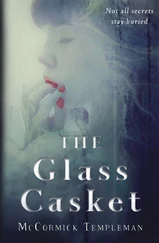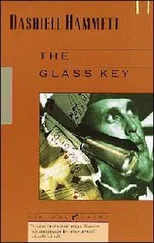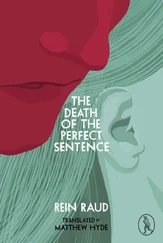But now they both had more pressing concerns. Dorothy’s father had been born in the United Indies, and it seemed doubtful they would be able to stay in New Occident. Sophia wrote to express her worry and to say how hard Shadrack had fought to prevent the measure that might now send all of Dorothy’s family into exile.
With a sigh, Sophia folded the letter, placed it in an envelope, and took out her drawing book. She always drew at the end of the day; it allowed her to record the hours that would otherwise, all too easily, slip away unnoticed. As images and words those hours became real, tangible, visible.
Years earlier, she had taken a trip with Shadrack to Vermont, and, as they were happening, the days seem to evaporate before her eyes until they lasted no more than minutes.
Upon their return home, Shadrack had given her a notebook with calendar pages as a way of helping her keep track of time. “Memory is a tricky thing, Sophia,” he had said to her. “It doesn’t just recall the past, it makes the past. If you remember our trip as a few minutes, it will be a few minutes. If you make it something else, it will be something else.” Sophia had found this idea strange, but the more she used the notebook, the more she realized that Shadrack was right. Since Sophia thought most clearly through pictures, she had placed images in the calendar squares to make careful records of her explorations through the year, whether they required leaving Boston or sitting quietly in her room. And incredibly, time became ordered, reliable, constant.
Now she had no need for calendar pages; she had her own method for reining in those slippery hours, minutes, and seconds. She had even devised her own manner of binding the paper, so that her notebook unfolded like an accordion and she was able to see the continuous passage of time in a clear, notched line like a ruler along one side of the page. At the margin she dutifully marked the time and recorded the happenings of the day. She filled the center of the page with the day’s images, thoughts, and quotes from people and books. Often she dipped backward or forward to amend how things had happened or speculate how they might happen.
Perhaps due to Shadrack’s influence or perhaps due to her own natural inclinations, she had realized that her sketches and recordings were actually maps: maps to guide her through the shapeless time that would otherwise stretch boundlessly into her past and future. Straight lines formed the borders of her observations, and dashed lines linked the borders to memories and wishes. Her thoughts connected to them with hatched lines, marking her mental travels, so that Sophia always knew not only what had happened when, but what she had been thinking at the time.
Using a soft pencil and the tips of her fingers, she began drawing June fourteenth. She found herself sketching the absurd, detestable mustache of Rupert Middles and quickly drew a firm line around him, boxing him off in disgust. Not that, she said to herself, trying to put the whole dreadful morning out of her mind. She began again. Soon she realized she was drawing the boy from the circus. It was difficult to capture the expression on his face that had so impressed her: his dark, intent gaze; his careless smile. “He was almost laughing,” she murmured. She glanced down at her notebook. That’s not what he looked like, she thought.
She turned the page to start over and then slowly began turning pages in the opposite direction, back to a drawing she had made on the last day of school.
A woman of middle age with laugh lines and short, wavy hair gazed fondly out at Sophia; a tall man with an impish smile and a bit of a stoop stood protectively behind her. Sophia had drawn her parents many times. She tried to imagine them as they would be now, older and a little heavier; over time the drawings had grown more detailed and vivid. But I will never really draw them if I never see them again, she thought. She closed her notebook and put it in the drawer with a sigh of frustration.
Sophia realized as she did so that the room had grown dark. She picked up her watch: it was almost eighteen-hour. Shadrack has been talking to her for so long, she thought. As she descended the steps, she could hear his voice—steady, reassuring—coming from the study. But when she reached the open doorway she stopped abruptly, seeing that Mrs. Clay was weeping openly.
“I can’t go back, Mr. Elli,” she said, with a note of terror in her voice.
“I know, Mrs. Clay. I know. I only say this because I want you to be aware of how difficult it may be. Carlton will hopefully get us the papers, but the government-issued lifewatch is difficult to procure. That’s all—”
“I can still hear the Lachrima. I can still hear its cries ringing in my ears. I would rather remain here illegally than go back. I can’t. ”
Sophia took an awkward step forward. “I am sorry to interrupt—”
“And I am sorry we’ve kept you waiting, Soph. We’ll be in the kitchen momentarily,” said Shadrack, with a look that was apologetic but firm. Mrs. Clay wiped her nose with her handkerchief and did not look up.
Sophia walked down the hallway, the question in her mind— What is a Lachrima?— unasked.
4
Through the Library Door
1891, June 15: 7-Hour 38
This is New Occident’s Great Age of Exploration. Travelers head as far as their vessels, mounts, and feet will carry them. But exploration is dangerous work. Many explorers never return, and most of the world remains unknown. Even those places that can be explored prove terribly distant for all but the most elite traveler. Postal routes are fragmentary or nonexistent. Trade routes are painstakingly cultivated, only to crumble. To be connected to the world is a constant, difficult labor.
—From Shadrack Elli’s History of New Occident
SOPHIA ALWAYS TOLD Shadrack everything; usually he knew what she was thinking without having to ask. And Shadrack told Sophia everything. At some point, he had realized that this oddly grown-up child had the maturity and capabilities of someone far older. He had known graduate students less able to keep their lives in order. And so he even shared the complexities of his work with his niece, making her far more knowledgeable about cartology than any other thirteen-year-old in Boston. They did not keep secrets from each other. Or so Sophia thought.
The next morning, Sophia found Shadrack in his study, writing furiously. The mahogany desk and the ink blotter shook from the pressure of his urgent scribbling. When she came in, he pushed himself back from the table and gave her a tired smile.
“Is Mrs. Clay still here?” Sophia asked.
“She went upstairs around one-hour.”
“You haven’t slept much.”
“No,” Shadrack replied shortly. “Apparently everything that could go wrong has. You may as well read it yourself—you’ll see the news eventually.” He handed Sophia a newspaper that was lying, partially disassembled, on his desk.
The principal story was, of course, the closure of the borders and the adoption of Rupert Middles’s Patriot Plan. But the rest of the headlines took Sophia’s breath away:
FIRE AT STATE HOUSE TAKES THREE LIVES
PARLIAMENT MEMBER MURDERED
LEAVING STATE HOUSE
MINISTER OF FOREIGN RELATIONS
SUFFERS “ACCIDENT”
Sophia gasped. “Carlton!” she cried.
* * *
MINISTER of Relations with Foreign Ages Doctor Carlton Hopish was discovered this morning in his house on Beacon Hill, suffering from what appears to have been a grievous stroke to his nervous system. He was found by his charlady, Samantha Peddlefor, who described her employer’s condition when she came upon him as “horrifying.”
Читать дальше












